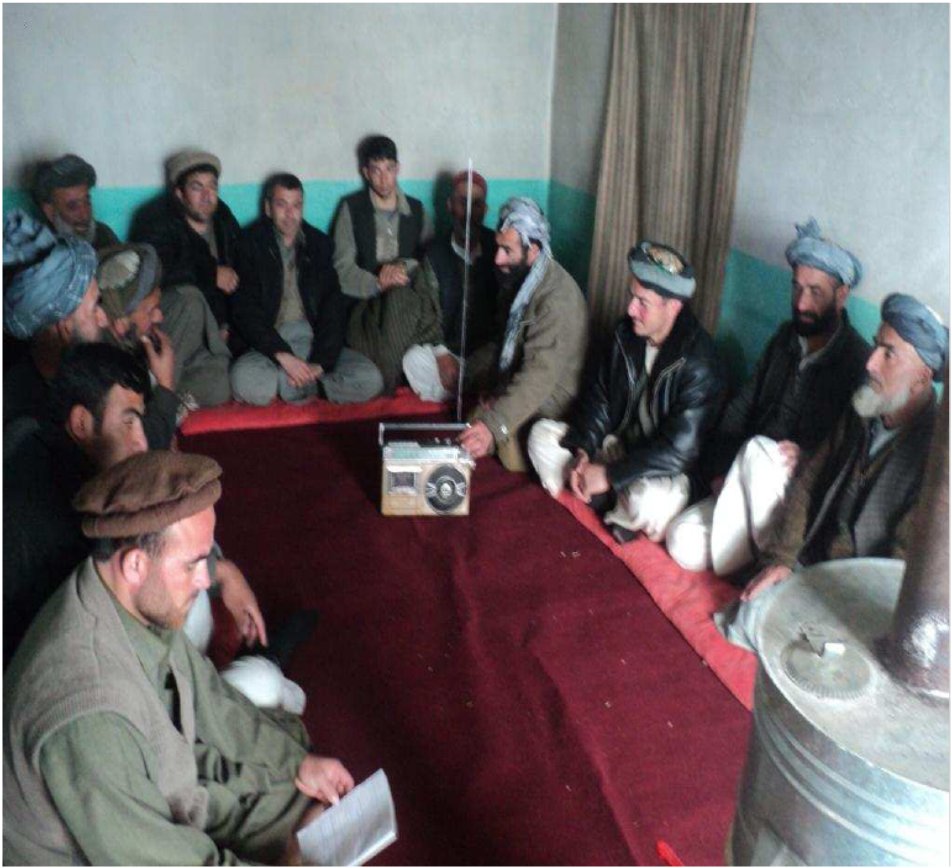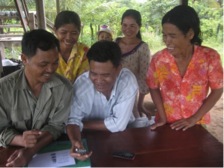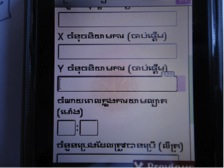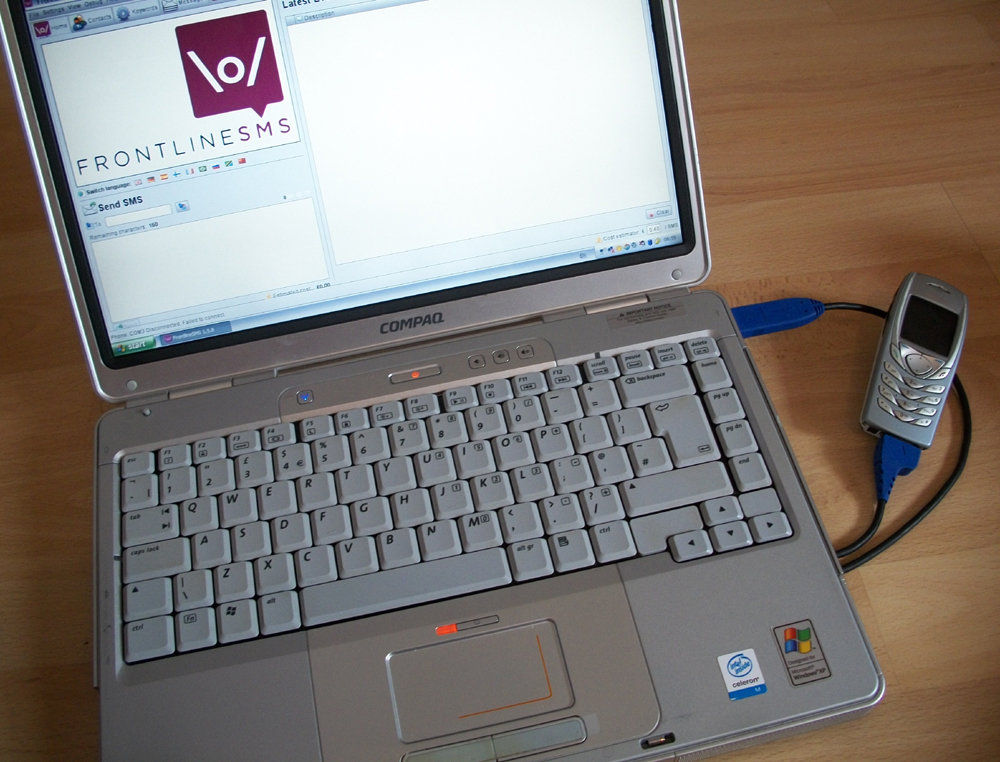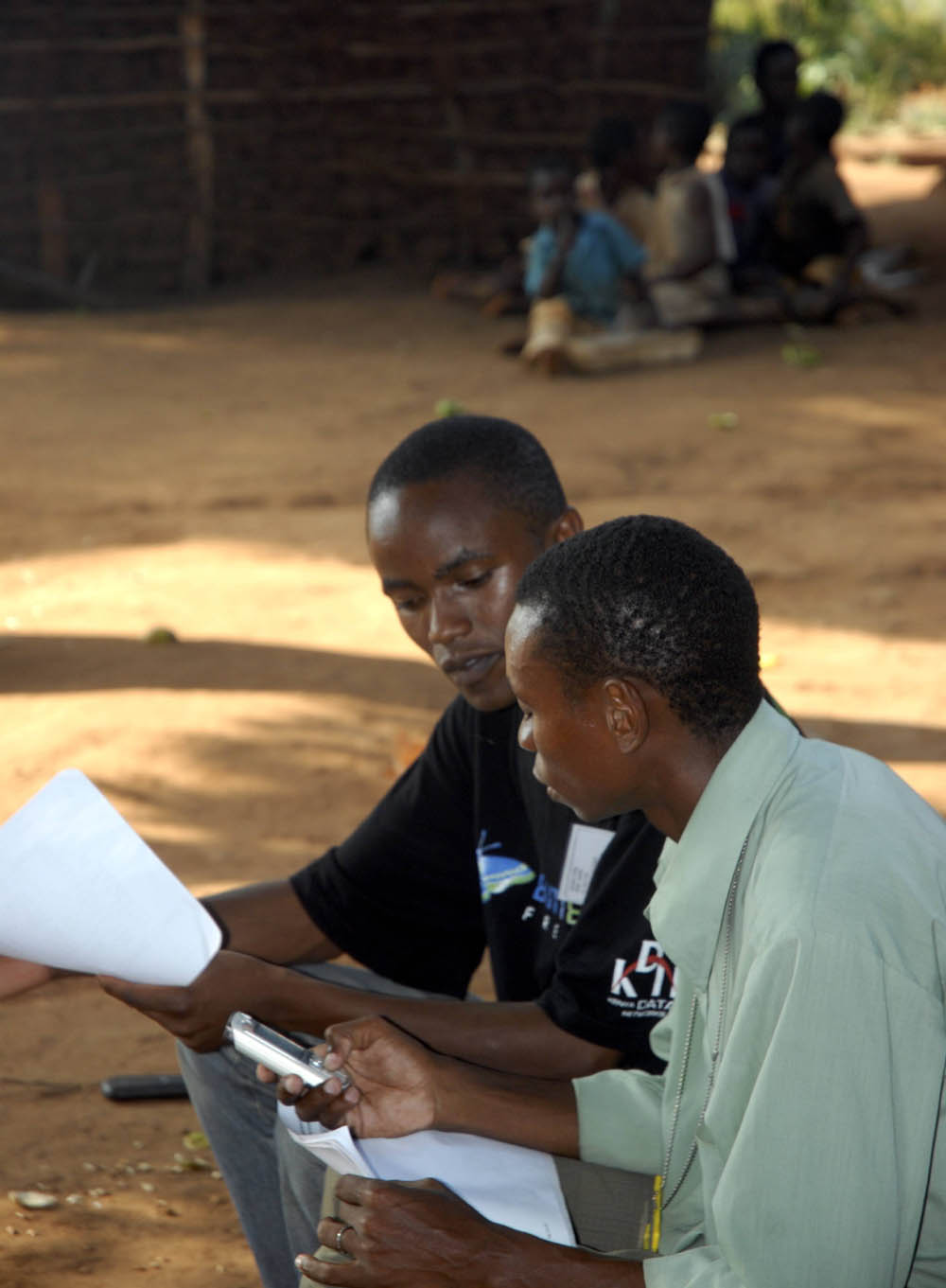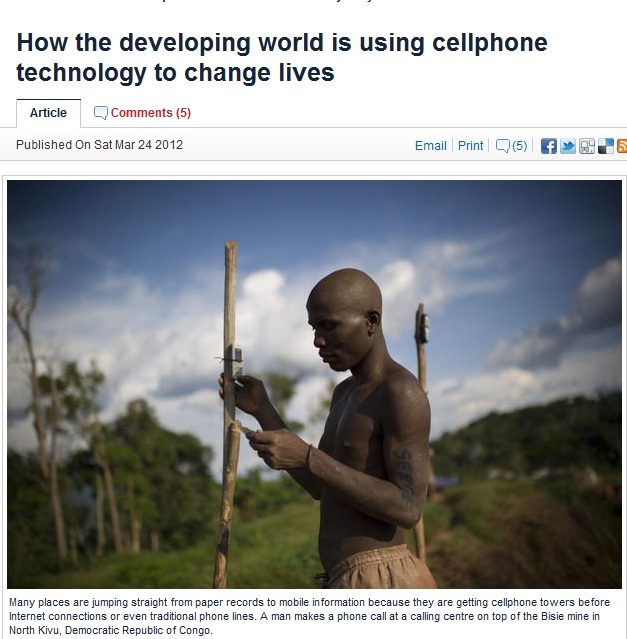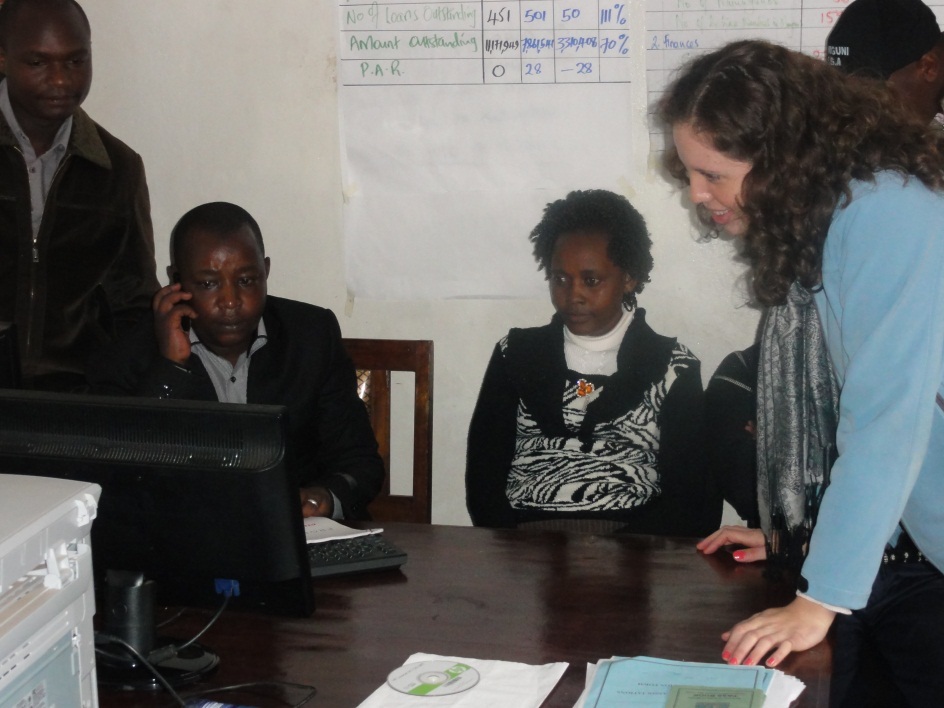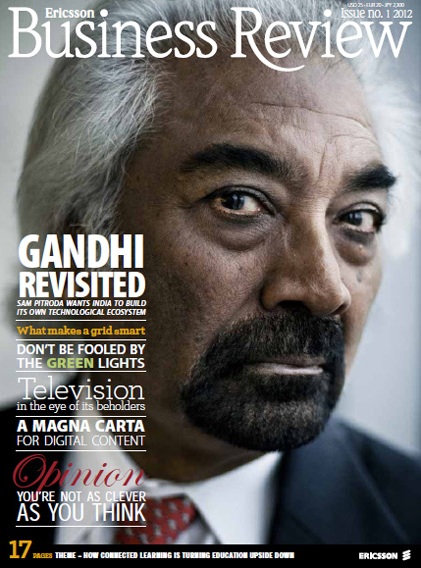By Peter Westman, FrontlineSMS:Radio Intern
Whilst FrontlineSMS is well known for being used in low infrastructure environments with little or no internet access and limited smart phone availability amongst audiences, we often hear cases of the software being used in contexts to complement many other technology options available. While Amy and I were in Cambridge in the UK a few weeks ago visiting colleagues at Cambridge University’s Centre of Governance and Human Rights, we also had the pleasure of dropping in to visit Cambridge 105, a community radio that broadcasts live across the city 7 days a week.
The station is a not-for-profit organization that draws on its wide range of volunteer members for all aspects of production throughout the day. Cambridge 105 actively uses social media tools such as Twitter and Facebook as part of their audience engagement strategy. They are also using FrontlineSMS in a very innovative way in order to help listeners interact with the presenters using text message.
Audience participation is popular at Cambridge 105, particularly during the breakfast and drive-time shows. Axel Minet (photo right), who works at the station, described how one of the most powerful appeals of Cambridge 105 is that the issues discussed are locally relevant and personal to the community. The station’s leaflets even say: “We are local. We live and love Cambridge.” The station has shows which are particularly popular with their Cambridge listeners, share local news and even once helped a local pet owner to find a lost cat.
Listeners are often invited to request songs and dedications via text message which are relayed to the relevant DJ. Using the FrontlineSMS as a “back end” (i.e. DJs do not need to directly enter the application), Cambridge 105 have designed a unique system in order to ensure messages reach the appropriate DJ. They have developed a customized PHP script, which is used to create dynamic web-based content. This is synchronized with Google Calendar containing the DJ schedule. When an SMS reaches FrontlineSMS, a query based on the message’s time stamp is sent to the calendar which works out the corresponding e-mail of the DJ who is on air. The message is then forwarded to the DJ in their email account using a http trigger and presenters can access the content from the studio computer while they are presenting.
By widely publicizing the contact number for the station, the station is also looking to increase participation from audiences, particularly so that those without smart phones (about half of the UK) can contribute to their favorite shows while on the move. Axel pointed out the notices displayed in the DJ booth and around the station, which explain how audiences can contact the show. These notices serve as a reminder for DJs that they must remind audiences of ways they can participate and interact, and Axel stressed the importance of repeating the number throughout the show (not just the beginning and end).
It is especially important for community stations to be able to learn about their audience so that they can tailor their programming towards their listeners’ concerns. The station manager at Cambridge 105 is interested in analytics around interaction. Being a digital form of communication, SMS is a great way to monitor this and offer metrics to advertisers. Advertising is important for the survival of Cambridge 105 who offer local sponsorship packages targeted to a potential audience of 150,000 Cambridge based customers, making it an effective marketing medium. Moreover audiences don’t feel advertising is an invasion as messages more likely to be targeted to their local needs.
Axel observed that FrontlineSMS software offers both a flexible back end which can be customized for their specific needs, while also permitting presenters to collect useful feedback and information from their audience in a simple and unobtrusive format. You can find Cambridge 105 at and even listen online.
If you’re using Frontline as part of your programming, we’d love to hear from you on radio@frontlinesms.com




